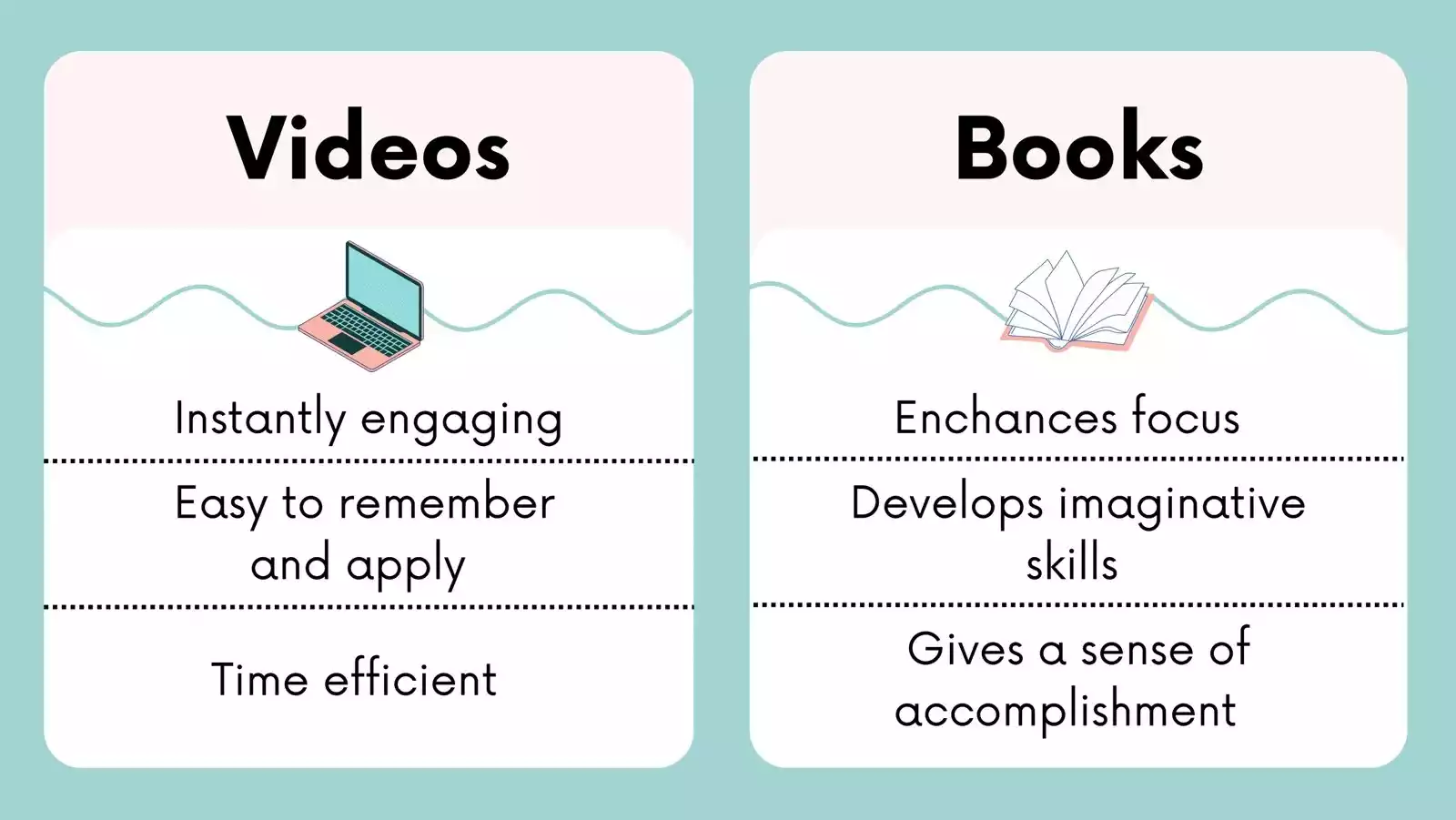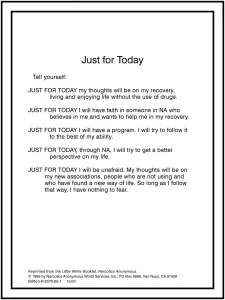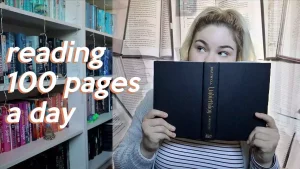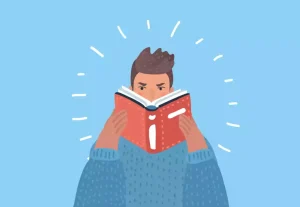The Power of Reading and Watching
In today’s fast-paced society, the debate between reading and watching as preferred methods of consuming information and entertainment is more relevant than ever. Both activities offer unique benefits and cater to different preferences and learning styles. Reading has been a cornerstone of human civilization for centuries, providing a means to record history, share knowledge, and stimulate imagination. On the other hand, watching, particularly through modern digital media, offers a dynamic and engaging way to absorb information quickly and visually.
Reading allows for deep cognitive engagement, fostering critical thinking and comprehension skills. It requires the reader to actively process and interpret text, which can enhance memory retention and understanding. Historical figures like Benjamin Franklin and Thomas Jefferson were avid readers, attributing much of their knowledge and wisdom to their extensive reading habits.
Watching, especially through visual media like television, movies, and online videos, engages multiple senses simultaneously. This multisensory experience can make complex information more accessible and easier to understand. The advent of educational television programs in the mid-20th century, such as “Sesame Street,” revolutionized learning for children by combining entertainment with education.
Both reading and watching have their place in our lives, and understanding their respective advantages can help us make informed choices about how we consume information and entertainment.
Benefits of Reading
Cognitive Benefits
Reading offers numerous cognitive benefits that contribute to mental development and intellectual growth.
Enhances Vocabulary
Reading exposes individuals to a wide range of vocabulary, including words and phrases that may not be commonly used in everyday conversation. This exposure helps to expand one’s vocabulary and improve language skills. For example, classic literature often contains rich and varied language that can enhance a reader’s linguistic repertoire.
Improves Focus and Concentration
Reading requires sustained attention and concentration, which can help improve focus over time. Unlike watching, which can be more passive, reading demands active engagement with the text. This active engagement can train the brain to concentrate for longer periods, which is beneficial for tasks that require sustained mental effort.
Emotional and Psychological Benefits
Reading also offers emotional and psychological benefits that contribute to overall well-being.
Reduces Stress
Reading can be a relaxing and stress-relieving activity. Immersing oneself in a good book can provide an escape from the pressures of daily life, offering a mental break and reducing stress levels. Studies have shown that reading can lower heart rate and reduce muscle tension, making it an effective way to unwind.
Enhances Empathy
Reading fiction, in particular, can enhance empathy by allowing readers to experience the thoughts and emotions of characters. This vicarious experience can help readers develop a better understanding of others’ perspectives and emotions, fostering greater empathy and compassion.
Benefits of Watching
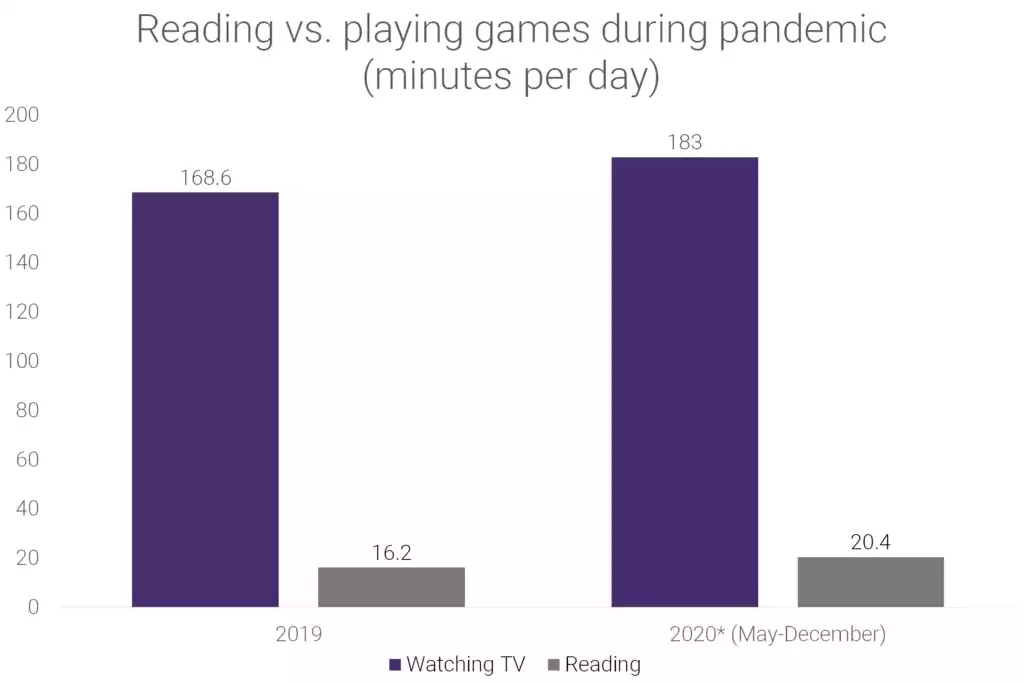
Visual and Auditory Learning
Watching offers unique advantages, particularly for visual and auditory learners.
Engages Multiple Senses
Watching engages both visual and auditory senses, making it an effective way to convey information. This multisensory engagement can enhance understanding and retention, particularly for complex concepts that may be difficult to grasp through text alone.
Simplifies Complex Information
Visual media can simplify complex information by using visuals, animations, and sound to illustrate concepts. Educational videos and documentaries often use these techniques to make learning more accessible and engaging.
Entertainment and Relaxation
Watching also provides entertainment and relaxation benefits that contribute to overall enjoyment and leisure.
Provides Immediate Gratification
Watching can provide immediate gratification, offering a quick and easy way to relax and be entertained. Whether it’s a movie, TV show, or online video, watching can offer instant enjoyment without the need for sustained mental effort.
Offers a Shared Experience
Watching can be a social activity, offering opportunities for shared experiences with friends and family. Watching a movie or TV show together can foster social connections and create shared memories.
Comparing Reading and Watching
Retention and Comprehension
Retention and comprehension are key factors to consider when comparing reading and watching.
Long-term Memory
Reading often leads to better long-term memory retention compared to watching. The active engagement required for reading helps to encode information more deeply in the brain, making it easier to recall later.
Understanding Complex Concepts
While watching can simplify complex information, reading allows for a deeper and more nuanced understanding. Reading provides the opportunity to revisit and reflect on the text, which can enhance comprehension of complex concepts.
Time Investment
Time investment is another important consideration when comparing reading and watching.
Speed of Consumption
Watching is generally faster than reading, allowing for quicker consumption of information. A video can convey information in a matter of minutes that might take hours to read.
Depth of Engagement
While watching may be faster, reading offers a deeper level of engagement. The time invested in reading can lead to a more thorough and reflective understanding of the material.
Impact on Society
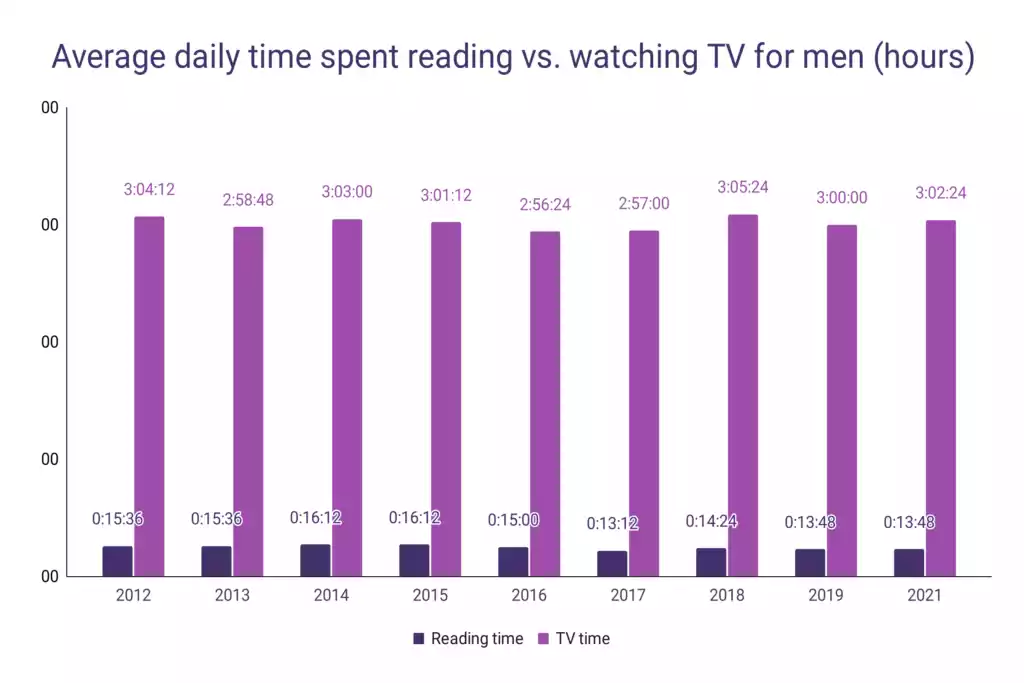
Cultural Influence
Both reading and watching have significant cultural impacts.
Shaping Public Opinion
Media, whether through books or visual content, plays a crucial role in shaping public opinion. Books have historically been used to spread ideas and influence societal change, while visual media has the power to reach a wide audience quickly and effectively.
Preserving History
Books and visual media both serve as important tools for preserving history. Written records provide detailed accounts of historical events, while documentaries and films offer visual representations that bring history to life.
Educational Systems
Educational systems have evolved to incorporate both reading and watching as essential components of learning.
Traditional vs Modern Methods
Traditional education has relied heavily on reading and written materials, while modern education increasingly incorporates visual media and technology. Both methods have their strengths and can complement each other in a balanced educational approach.
Accessibility and Inclusivity
Visual media can enhance accessibility and inclusivity in education. Videos and interactive content can make learning more accessible to individuals with different learning styles and abilities, promoting a more inclusive educational environment.
Personal Preferences
Individual Learning Styles
Personal preferences for reading or watching often depend on individual learning styles.
Visual Learners
Visual learners may prefer watching as it aligns with their natural inclination to learn through visual stimuli. Videos, diagrams, and animations can enhance their understanding and retention of information.
Auditory Learners
Auditory learners may benefit from watching as it engages their auditory senses. Listening to explanations and discussions can help them grasp concepts more effectively.
Situational Choices
Situational factors also influence preferences for reading or watching.
Contextual Preferences
Preferences for reading or watching can vary depending on the context. For example, reading may be preferred for in-depth study, while watching may be more suitable for quick information or entertainment.
Availability of Resources
The availability of resources, such as books or digital devices, can also influence preferences. Access to a well-stocked library or streaming services can shape one’s choice between reading and watching.
Technological Advancements
Digital Reading Platforms
Technological advancements have transformed the way we read and watch.
E-books and Audiobooks
Digital reading platforms, such as e-books and audiobooks, offer convenient and portable alternatives to traditional books. These platforms provide access to a vast library of content, making reading more accessible and flexible.
Interactive Reading Apps
Interactive reading apps enhance the reading experience by incorporating multimedia elements, such as videos, animations, and interactive quizzes. These apps can make reading more engaging and interactive.
Streaming Services
Streaming services have revolutionized the way we watch content.
On-Demand Content
Streaming services offer on-demand access to a wide range of content, allowing viewers to watch what they want, when they want. This flexibility has transformed media consumption habits.
Personalized Recommendations
Streaming services use algorithms to provide personalized recommendations based on viewing history and preferences. This personalization enhances the viewing experience and helps users discover new content.
Health Implications
Physical Health
Both reading and watching have physical health implications.
Eye Strain and Posture
Prolonged reading or watching can lead to eye strain and poor posture. It’s important to take breaks and practice good ergonomics to mitigate these effects.
Sleep Patterns
Watching screens before bedtime can disrupt sleep patterns due to the blue light emitted by digital devices. Reading a physical book before bed may be a better option for promoting healthy sleep.
Mental Health
Reading and watching also impact mental health.
Cognitive Load
Watching can sometimes lead to cognitive overload due to the rapid pace and constant stimulation. Reading, on the other hand, allows for a more controlled and paced cognitive experience.
Emotional Well-being
Both reading and watching can contribute to emotional well-being. Reading can provide a sense of accomplishment and relaxation, while watching can offer entertainment and a mental break.
Future Trends
Integration of AR/VR
The future of reading and watching may involve the integration of augmented reality (AR) and virtual reality (VR).
Augmented Reality in Reading
AR can enhance the reading experience by overlaying digital information onto physical books. This technology can provide interactive and immersive reading experiences.
Virtual Reality in Watching
VR can transform watching into an immersive experience, allowing viewers to feel as if they are part of the content. This technology has the potential to revolutionize entertainment and education.
Hybrid Models
Hybrid models that combine reading and watching are emerging.
Interactive Storytelling
Interactive storytelling combines elements of reading and watching, allowing users to engage with the content in a dynamic and participatory way. This approach can enhance engagement and learning.
Gamification of Learning
Gamification incorporates game elements into learning, making it more interactive and enjoyable. This approach can be applied to both reading and watching, creating a hybrid learning experience.
FAQs
Is reading better for learning than watching?
Reading and watching both have their strengths when it comes to learning. Reading often leads to better long-term memory retention and a deeper understanding of complex concepts. It requires active engagement, which helps encode information more deeply in the brain. Watching, on the other hand, can simplify complex information and make it more accessible through visual and auditory stimuli. It engages multiple senses, which can enhance understanding and retention, particularly for visual and auditory learners. Ultimately, the effectiveness of reading or watching for learning depends on individual preferences and learning styles.
Can watching videos replace reading books?
Watching videos can complement reading books, but it may not fully replace the benefits of reading. Videos offer a quick and engaging way to absorb information, making them suitable for visual and auditory learners. They can simplify complex concepts and provide immediate gratification. However, reading books offers a deeper level of cognitive engagement, enhancing critical thinking, comprehension, and vocabulary. Books allow for a more reflective and nuanced understanding of the material. Both reading and watching have their place in learning, and a balanced approach that incorporates both methods can be most effective.
How does reading affect the brain differently than watching?
Reading and watching affect the brain in different ways. Reading requires active engagement, which stimulates cognitive processes such as critical thinking, comprehension, and memory retention. It activates multiple areas of the brain, including those responsible for language, visualization, and imagination. Reading also enhances neural connectivity and can improve focus and concentration. Watching, on the other hand, engages visual and auditory senses, activating areas of the brain responsible for processing visual and auditory information. It can simplify complex concepts and provide a multisensory experience. Both activities contribute to brain development, but they do so in different ways.
What are the advantages of reading over watching?
Reading offers several advantages over watching. It enhances vocabulary and language skills, improves focus and concentration, and provides a deeper level of cognitive engagement. Reading allows for a more reflective and nuanced understanding of complex concepts. It also reduces stress and enhances empathy by allowing readers to experience the thoughts and emotions of characters. Reading can be done at one’s own pace, providing the opportunity to revisit and reflect on the material. Additionally, reading does not emit blue light, making it a better option for promoting healthy sleep patterns.
Are there any disadvantages to watching over reading?
While watching offers unique benefits, it also has some disadvantages compared to reading. Watching can lead to cognitive overload due to the rapid pace and constant stimulation. It may not provide the same level of cognitive engagement and critical thinking as reading. Prolonged screen time can lead to eye strain, poor posture, and disrupted sleep patterns due to blue light emission. Watching may also provide a more passive learning experience, which can limit deep comprehension and retention. Balancing watching with reading can help mitigate these disadvantages and provide a more well-rounded approach to information consumption.
Relevant Data Table
| Aspect | Reading | Watching |
|---|---|---|
| Cognitive Engagement | High | Moderate |
| Memory Retention | Long-term | Short-term |
| Learning Style | Textual | Visual/Auditory |
| Stress Reduction | High | Moderate |
| Entertainment | Moderate | High |
Conclusion
In conclusion, both reading and watching offer unique benefits and cater to different preferences and learning styles. Reading provides deep cognitive engagement, enhances vocabulary, and improves focus and concentration. It also offers emotional and psychological benefits, such as stress reduction and enhanced empathy. Watching, on the other hand, engages multiple senses, simplifies complex information, and provides immediate gratification and entertainment. Understanding the advantages of both activities can help individuals make informed choices about how they consume information and entertainment. A balanced approach that incorporates both reading and watching can provide a well-rounded and enriching experience.
—
Sources:
– Healthline. “The Benefits of Reading Books.” Healthline.
– Psychology Today. “The Psychological Benefits of Watching Movies.” Psychology Today.
Say hello to Nora J. Wilson, a spirited blogger whose heart beats for storytelling and connection. Nora J. Wilson is the owner and chief editor of Readingszone.com. Hailing from the vibrant streets of Brooklyn, Nora brings to life the pages of her blog with a degree in English Literature from Yale University. Contact her via e-mail norajwilson101@gmail.com

